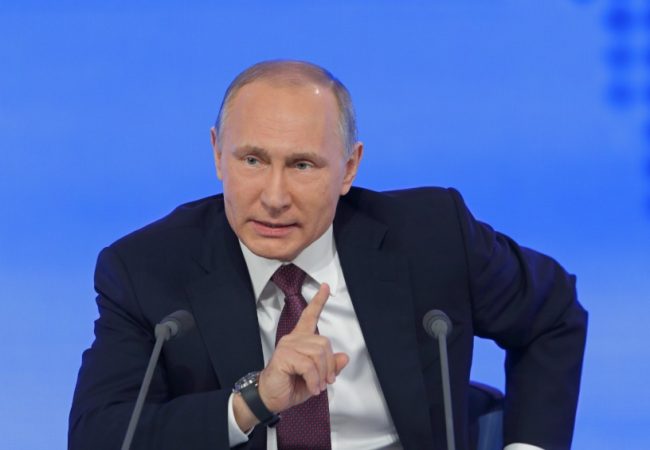TRUE NORTH COLUMN: Canada Could Take Away Half of Putin’s Energy Sales

This past April, 11-year-old Yana Stepanenko was standing with her mother and brother at a train station in Kramatorsk, Ukraine when a Russian rocket hit.
The blast took out both of the young girl’s legs and one of her mother’s. Yana told local media, “I opened my eyes. I felt my legs were burning hot. I didn’t know what had happened to them.”
At least 52 people were killed and over 100 people were injured. A month later, Yana lost her father when he died defending his country. The young Ukrainian girl has been robbed of her childhood innocence – these emotional and physical scars will last a lifetime.
In order to stop Putin’s regime from committing more atrocities like this we need to reflect on the old saying “follow the money.” If we do, new research by SecondStreet.org suggests Canada could play a significant role in defunding Putin’s military.
According to the Paris-based International Energy Agency (IEA), roughly half of Russia’s budget comes from selling oil and gas. As Shuv Majumder, an expert with the Ottawa-based MacDonald-Laurier Institute told SecondStreet.org, Russia is essentially “a big gas station.” This is how Putin is paying for his military’s rockets, tanks and other equipment.
Many observers have noted that Canada has significant oil and natural gas resources and that if we exported more, particularly to Europe, we could help the world get off of Russian energy and reduce the funds Putin has for his military.
SecondStreet.org wanted to investigate just how much Russian oil and natural gas our country could displace. Is it 10%? 50%? More?
We asked eight experts in the oil and gas industry to estimate how much we could increase our exports in the short term (one year), medium term (three to five years) and long term (seven to ten years). We then averaged their responses and compared them with estimates for future Russian exports.
A key assumption we asked survey participants to consider was that Canada made it a national priority to develop and export our resources. This would mean applications for new oil and gas projects would be handled quickly rather than taking years to examine. At the same time, police would act swiftly to remove any protestors who try to obstruct these projects.
As you might imagine, there isn’t much Canada can do in the short-term. Experts estimated Canada could only displace about 4-6% of Russian oil and gas exports.
However, by the end of the decade, Canada could displace upwards of 59% of annual Russian natural gas exports and 46% of their oil exports. Simply put, we could deliver a significant blow to Putin’s cash cow.
Yes, it will take a while to do so, but we can’t forget that the world is facing a long-term problem with Russia. Even if Putin pulled his troops out of Ukraine today, would you want to buy oil and gas from his regime five years from now? Ten? The answer is obvious.
So how did the Germans do it? Private sector companies worked on the project non-stop while the government passed legislation to expedite approvals. As a result, the German people can stay warm this winter while their nation stops propping up Putin’s military.
Canada could also employ this expedited approach and help the world get off Russian energy sooner rather than later. Will we rise to the occasion? For the sake of victims like Yana, the answer should be “yes.”
Colin Craig is the President of SecondStreet.org, a Canadian think tank. You can reach him at colin@secondstreet.org or follow him on Twitter (@colincraig1)
This column was published in True North on December 13, 2022.
You can help us continue to research and tell stories about this issue by making a donation or sharing this content with your friends. Be sure to sign up for our updates too!


